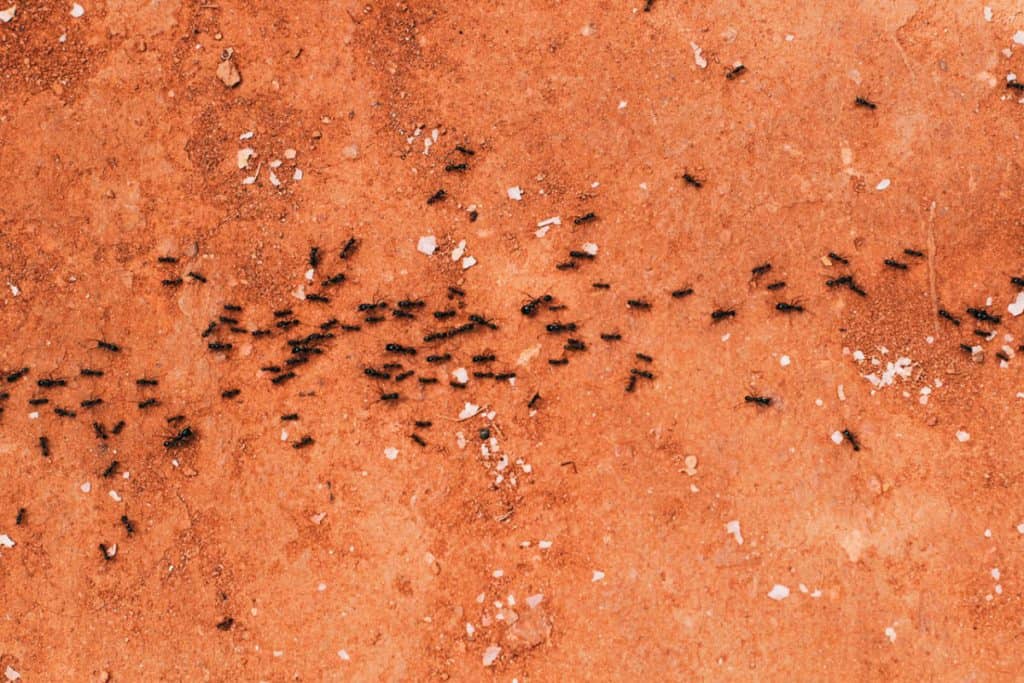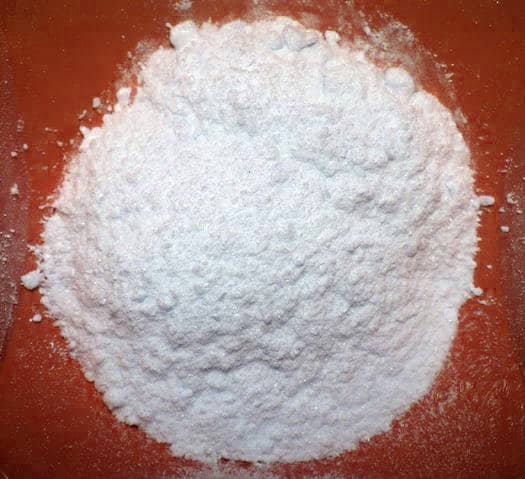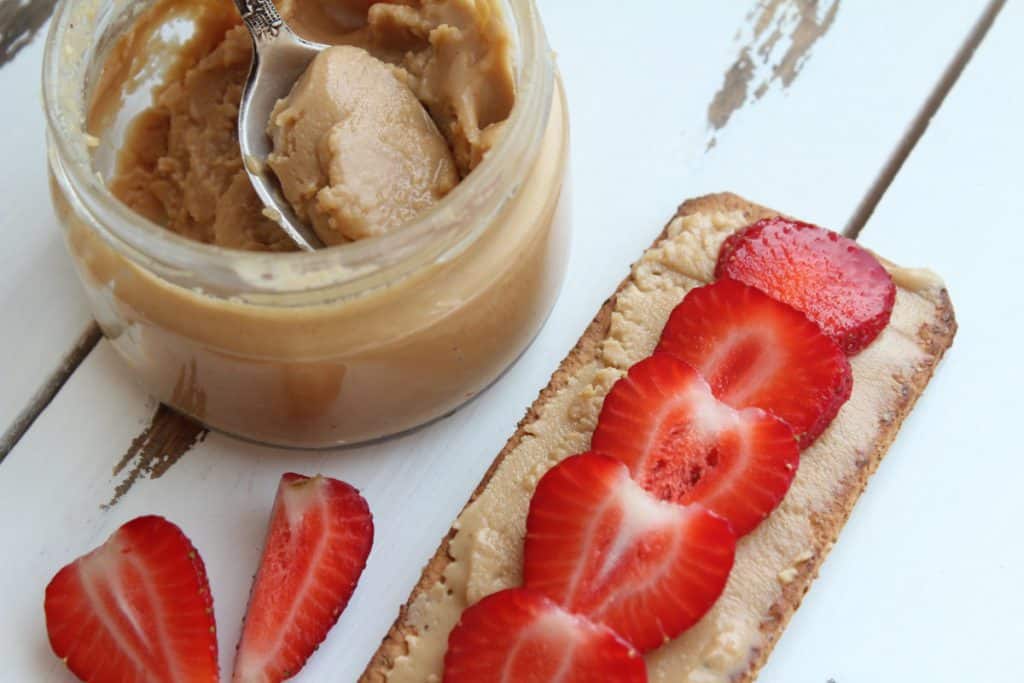
If you enjoy reading this article, why not check out our articles on How Strong Are Ants? Let’s Find Out! and Do Ants Get Hurt When They Fall?
We are very much acquainted with these small insects, they are well-organized opportunists especially when you have leftover food that is not stored properly.
Having them around can become a big nuisance, especially if they are nesting somewhere within your home. You’ll see them crawling up and down your walls or across the floor. In some countries having ants enter your home means good tidings will come but the truth is, they can cause damage if not properly dealt with soon.
Can ants affect house foundations?
The answer is a resounding yes. You’ll especially be more susceptible to some foundation damage if the ant species that are currently wreaking havoc to your home is a species called carpenter ants. They are notorious in creating nests in wood found inside your home. Carpenter ants can be a real nuisance… learn more about the damage they can cause in What Can Ants Bite and Chew Through?
Furthermore, having ants inside your home let alone in your foundation can be very unpleasant. You will not only suffer from ants invading your food or pantry but also from ant bites if the species invading your territory is known to bite when disturbed. Let’s look into ants and foundations plus what steps you can take to prevent ant infestation in your home.
Ant Species Known To Invade Homes

More than 15,000 ant species have been recorded and the number keeps on growing. But for this article, we will focus on the most common species of ants that are found at home. We will discuss them one by one and determine if they can cause foundation damage or not.
Pavement Ants
These ants make their homes underneath rocks, sidewalks, and pavements around your home. You’ll most likely see them come inside your home to forage for food during summer and springtime. This is the season when they are the most active because they are establishing their dominance through turf battles with other ant colonies in the area.
Are pavement ants harmful?
They prefer to dwell in basements, between the cracks on the concrete floor. If the infestation is not caught early, you can be looking at a whole colony of ants residing between cracks that can cause some shifting of paved walkways and a constant presence of excavated debris around their nesting site. You’ll be seeing dirt and other excavated debris constantly and this is a quick sign that ants are already creating a nest.
Carpenter Ants
Typically black or dark brown in color and is one of the most common ant species sounds in the U.S. They are bigger than other house ant species. Seeing these ants indoors is a cause for alarm. They are known to love creating nests in rotting wood and with them being indoors you can expect them nesting somewhere nearby.
Unlike termites who eats wood non-stop and causes damage in a very short time, carpenter ants excavate wood to create nest galleries with smooth walls. Over time, if the nest is not discovered, the integrity of the wood where they have taken up residence can be compromised. A sign of carpenter ant nest is the constant pile of sawdust near a wooden part of your house.
How do you know if you have carpenter ants?
When you see a lone carpenter ant wandering around in your kitchen, you can breathe a sigh of relief. This ant might only be foraging for a possible food source and that their nest might be located somewhere outside on the rotting bark of a tree. But if you see these ants very frequently inside your home then you might want to locate the nest.
What usually happens is that the mother nest of the carpenter ant is still outside your house but satellite nests can be constructed by these social critters inside your home where food can be easily accessed. If you have wooden foundations you might want to check there first. Not dealing with them early on might mean bigger repairs on your home.
Other Ant Species
As for the other common ant species found inside homes, most come inside during spring when rain is at its peak to look for a dry place to live in while others are mostly nesting outside is only coming indoors to forage for food.
All ants are attracted to sugary and sweet things while others can also go for greasy meats and other oily food in your home. They do not affect your foundation since they are more likely to be looking to build nests near food and water source, nest behind bathroom walls, under the sink, or beneath floorboards. The best action to take when you spot a possible ant nest is to clean the area and locate where their food sources it. Cutting off their food source may lead to the ants leaving the nest to find a more suitable area for them to survive.
Tips On Preventing An Ant Invasion
There are two ways to approach this issue. One is to go chemical and the other is to go natural. As for chemical you can buy bug sprays, liquid ant bait or just call an exterminator if you don’t want to deal with it yourself or if the species of ant that is invading your residence is one that is really aggressive and can cause a severe allergic reaction.
If you prefer the natural way of ant prevention then you can use lemon juice, cinnamon powder, peppermint, chalk, diatomaceous earth or those old coffee grinds as a deterrent for ants. But if you prefer just annihilate the whole ant nest then you can use, boiling water and dish soap, a mixture of borax, water, and sugar or baking soda and powdered sugar mix.
Here are other tips to prevent ants from coming into your home.
- Switch your counter cleaner and floor cleaner with a mixture of vinegar and water.
- Don’t forget to seal your food properly, especially leftover food.
- Clean areas where food has been spilled or where you think crumbs might be located. Spray the area with some of that water and vinegar creature then dry it out.
- Remove invisible trail left by ants by spraying the area with pure lemon juice, peppermint essential oil, and water solution or your trusty vinegar and water solution.
- House ants love to make a nest in moist areas so make sure that no faucets are leaking, or areas that are always wet or damp inside your home.
- Fill in those cracks and holes in your walls and floors. This will discourage ants from nesting in those areas in your home. The gaps in sidings, doors, entryways, and windows should be sealed too. To prevent ants from using them as entryways to your home.
- Regularly clean your gutters, check your roof and inspect your plumbing lines. Any leaks will create damp areas in your house that can attractants in the future.
I prefer to just stick to the water and vinegar solution because it is very handy. I would even use the solution to areas where I know ants might nest. Plus, it is a way for me to reduce my carbon footprint and it’s always readily available in my pantry whenever I run out.
If you find the nest you can call an exterminator to help you deal with it. Keep in mind that most professional exterminators will use chemical means to destroy the ant’s nest especially if they find that the species is one of the few that may cause some problems for us humans. A large nest is not something that you want to deal with on your own so make sure to call an expert.
Another thing to consider when you’re deciding to hire an expert pest control is if you have little ones in your household. Curious minds and hands can sometimes lead to accidents so, if you have a toddler who loves to run around in the yard and then you suddenly find a nest of aggressive ants nearby, it is best to deal with it immediately. Identify the species if you can and if it is a common one that can be dealt with non-chemical means then DIY it.
We have even more tips on how to prevent an ant invasion in Where Do Ants Hide?
Conclusion
In conclusion, bugs will always be a part of our life and that includes ants. But if the ants who started invading you home are the species that are known to cause damage on your foundation then you have nothing to be worried about. If you feel that you need to have an on-hand preventive solution for the problem, you can try out any of the solutions mentioned above. I am leaning towards the non-chemical solutions because they have fewer side effects on our environment and on us.
Another thing to keep in mind is that most ants will be attracted to greasy and sweet food so the number one preventive step to take is to keep your home clean as much as you can. Take out the trash every night and put left-over food in sealed containers. Prevention is always better than cure so make sure to include cleaning your home in your daily routine. I hope you find the information in this article helpful and insightful. Don’t hate the ants though, they are a part of our ecosystem. Who knows, they might have a bigger role in our environment that we don’t know yet?
If you enjoyed reading this article, why not check out our articles on Everything You Need to Know About Ants in Your Walls and How Strong Are Ants? Let’s Find Out
Recent Posts
Tiny Black Bugs in Bathroom NO WINGS: What They Are and What to Do!
Finding tiny black bugs in your bathroom can be uncomfortable, to say the least. Especially if they are persistent, or they appear in very large numbers, which they often like to do. When it...
Tiny Black Bugs in Plant Soil - What Are They & What To Do About It
A short horror story: You get a new houseplant. You do your best to take care of it. You’ve ensured that it has the right soil, the right amount of sun, it gets enough water. And then one day, you...




